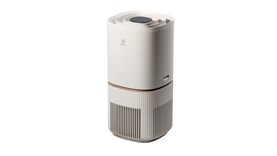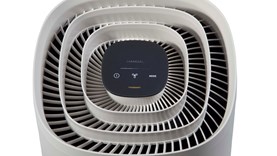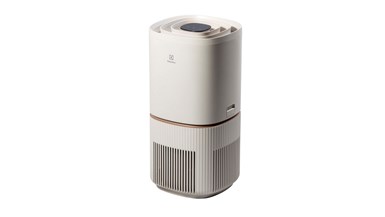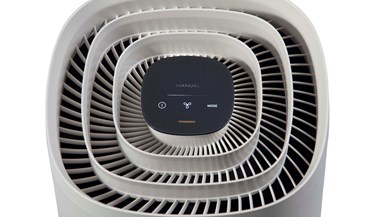Electrolux Ultimate Home 500 EP53-47SWA review
Priced at $499.


Good points
Bad points

Unlock our expert review and more
- Reviews and ratings you can trust
- Easy side-by-side comparison
- Recommended products at a glance
-
Recommended
View more details.
We recommend air purifiers with a CHOICE Expert Rating of 70% or more.
-
CHOICE Expert Rating
View more details.
This is made up of performance (70%) and ease of use (30%).
-
Performance score
View more details.
Based on dust removal (50%), smoke removal (40%) and VOC removal (10%).
-
Dust performance score
View more details.
How well this model filters out dust compared to the other models on test.
-
Smoke performance score
View more details.
How well this model filters out smoke compared to the other models on test.
-
VOC performance score
View more details.
How well this model filters out volatile organic compounds (VOCs) compared to the other models on test.
-
Ease of use score
View more details.
Based on the model's onboard controls, its remote (if it has one), how easy it is to move around, whether it's prone to tip over, how easy it is to clean, and the quality of the supplied instruction manual.
-
Comparative energy efficiency
View more details.
How the model compares for its energy efficiency (energy used in the dust performance test) against the other tested models. Air purifiers don't use a lot of power, but the best models combine low energy consumption with good dust removal performance.
-
Noise on high setting (dB)
View more details.
The noise measured on the highest speed setting.
-
Noise on low setting (dB)
View more details.
The noise measured on the lowest speed setting.
-
Shop Ethical rating
View more details.
Shop Ethical rates the environmental and social impact of the company (not the product) using independent sources. This rating is not included in our total score. N/A means there is no rating for that company.
- C
-
HEPA charcoal filter change interval
View more details.
How often the HEPA, charcoal and other special filters should be cleaned or replaced. Some models simply give a recommended time period, others will alert you, and some may do both.
- Not stated
-
Warranty (years)
View more details.
Stated warranty of the product. You're still covered by the Australian Consumer Law regardless of the manufacturer warranty.
- 2
-
Country of origin
View more details.
The claim of where the product was put together.
- China
-
Availability
View more details.
'Tested model' refers to air purifiers that are currently available in shops and online. 'Discontinued model' refers to air purifiers that are no longer available in shops, but may be available second-hand.
- Tested model
-
Price
View more details.
Typical retail price at time of publication.
- $499
-
Replacement filter cost
View more details.
The cost of replacement filters: HEPA, pre-filter and carbon filters as appropriate for each model. Some models have an all-in-one filter that combines all these types and must be replaced entirely each time. N/A = not available (we couldn't find any replacement filters or pricing; note the Hitachi claims 10-year life for its filter.)
- $109
-
Replacement filter cost per year
View more details.
Estimated cost per year for replacing the filters, based on the manufacturer recommendation and assuming the best case for how long the filter is claimed to last. Some filters will need to be changed more than once a year, other filters will last longer.
- $109
-
Fan settings
View more details.
The number of fan speed settings, including special modes such as night, heating and automatic.
- 5
-
Claimed room size
View more details.
The claimed room size (usually a maximum) for which the air purifier can keep the air clean. Treat this as a guide rather than a rule.
- 54m²
-
Dimensions (cm, H x W x D)
View more details.
Rounded to the nearest cm.
- 56 x 28 x 29
- Weight (kg)
- 5.7
- Website
- electrolux.com.au
-
HEPA filter
View more details.
High Efficiency Particulate Air (HEPA) – capable of trapping extremely small particles of dust, smoke and even bacteria and viruses. These filters need to be periodically replaced.
- Yes (HEPA H13)
-
Pre filter
View more details.
A coarse filter to catch big dust particles and pet hair so that they don't clog the HEPA and other filters. These can usually be washed and reused but may need to be replaced eventually.
- Yes
-
Charcoal filter
View more details.
Charcoal or carbon filters are said to be good for trapping odours and VOCs such as formaldehyde. These can usually be washed and reused but may need to be replaced eventually.
- Yes
-
Ionisation filter
View more details.
Generates charged particles (ions) to remove pollutant particles and microbes from the air. These filters need to be periodically replaced. Ionisation of air can produce small amounts of ozone which is a breathing irritant.
- No
-
UV sterilisation
View more details.
UV light can be used to kill bacteria and viruses trapped by the purifier. We haven't tested this feature.
- No
-
Ozone generation
View more details.
Some models use ozone to remove dust and other particles form the air. Excessive ozone can be a breathing irritant and we generally recommend avoiding these models, but include them in the test to see how they perform.
- No
-
Remote control
View more details.
Does the device have a remote.
- No
-
Wi-Fi app
View more details.
Some models can be controlled via an app on your smartphone. The app may also show data about the amount of pollutants detected and removed.
- Yes
-
Timer
View more details.
Most models have various timer settings to run for a set number of hours. Timers might apply only to certain modes such as Night or Away (for use when you're away from the home).
- No
-
Claimed CADR dust removal (m3/hr)
View more details.
The model's claimed dust removal rate as per industry-standard Clean Air Delivery Rate (CADR) tests. This shows how cubic metres per hour the model claims to process.
- 419
-
Claimed bacteria and virus removal
View more details.
The claimed percentage of microbe removal, or other related claims. We haven't tested this aspect of performance.
- 99.9% (bacteria), 99.99% (viruses)






